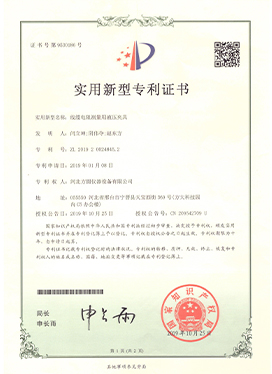tensile strength tester machine factory
Understanding Tensile Strength Tester Machines A Comprehensive Overview
In the realm of material testing, tensile strength tester machines play a crucial role in determining the mechanical properties of various materials. These machines are designed to measure the response of materials to tensile (pulling) forces, providing valuable data about their strength, ductility, and overall durability. The importance of tensile strength testing cannot be overstated, especially in industries such as construction, manufacturing, and aerospace, where the integrity of materials directly impacts safety and performance.
What is Tensile Strength?
Tensile strength refers to the maximum amount of tensile (pulling) stress that a material can withstand before failure or rupture. It is a fundamental property that dictates how materials behave under stretching forces. Materials with high tensile strength are critical for applications where structural integrity is paramount, including bridges, buildings, vehicles, and more.
The Functionality of Tensile Strength Tester Machines
Tensile strength tester machines come in various types and designs, each suited for specific testing requirements
. At their core, these machines consist of a tensile testing frame equipped with grips to hold the sample material, a load cell to measure the force applied, and a computer or data acquisition system to record and analyze the results.1. Types of Tensile Testing Machines - Electronic Tensile Testers These machines use electronic sensors and software to provide precise measurements and data logging. They are widely used due to their accuracy and ease of use. - Hydraulic Tensile Testers Utilizing hydraulic systems, these testers are capable of applying higher loads and are ideal for testing larger samples. - Universal Testing Machines (UTM) These versatile machines can perform various tests, including tensile, compressive, and flexural testing, making them suitable for laboratories needing multifunctionality.
2. Testing Procedure The standard process involves the careful preparation of the test specimen, which is usually shaped to ensure uniformity in the test area. The sample is then mounted in the grips of the tester, and a controlled tensile load is applied. The machine continuously measures the force exerted and the elongation of the specimen until it reaches its breaking point. The data collected is then analyzed to produce a stress-strain curve, from which key metrics like yield strength, elongation at break, and tensile strength can be determined.
tensile strength tester machine factory

Importance of Tensile Strength Testing
Tensile strength testing serves several vital functions across numerous industries
- Quality Control and Assurance Regular testing ensures that materials meet specified standards and requirements, reducing the risk of failures in structural applications. - Material Development Engineers and material scientists rely on tensile strength tests to develop new materials or improve existing ones, tailoring them for specific applications. - Compliance with Industry Standards Many industries are governed by strict regulations requiring materials to undergo tensile strength testing to ensure safety and performance criteria are met.
Choosing the Right Manufacturer
When seeking a tensile strength tester machine, it is crucial to partner with a reputable factory that specializes in material testing equipment. Factors to consider include the manufacturer’s experience, the technology used in their machines, customer reviews, and after-sales support. A good manufacturer will offer robust machines that are not only reliable but also customizable to fit various testing needs.
Conclusion
In conclusion, tensile strength tester machines are indispensable tools for evaluating the mechanical properties of materials. By providing accurate and reliable data, these machines support industries in ensuring quality, safety, and performance. The well-established significance of tensile strength testing underscores the need for reliable equipment and manufacturers who can meet the demands of modern material testing. As technology continues to evolve, the future of tensile strength testing looks promising, with innovations enhancing accuracy, efficiency, and application versatility that will drive progress in material science and engineering.
-
Why the Conductor Resistance Constant Temperature Measurement Machine Redefines Precision
NewsJun.20,2025
-
Reliable Testing Starts Here: Why the High Insulation Resistance Measuring Instrument Is a Must-Have
NewsJun.20,2025
-
Flexible Cable Flexing Test Equipment: The Precision Standard for Cable Durability and Performance Testing
NewsJun.20,2025
-
Digital Measurement Projector: Precision Visualization for Modern Manufacturing
NewsJun.20,2025
-
Computer Control Electronic Tensile Tester: Precision and Power for the Modern Metal Industry
NewsJun.20,2025
-
Cable Spark Tester: Your Ultimate Insulation Assurance for Wire and Cable Testing
NewsJun.20,2025
 Copyright © 2025 Hebei Fangyuan Instrument & Equipment Co.,Ltd. All Rights Reserved. Sitemap | Privacy Policy
Copyright © 2025 Hebei Fangyuan Instrument & Equipment Co.,Ltd. All Rights Reserved. Sitemap | Privacy Policy
